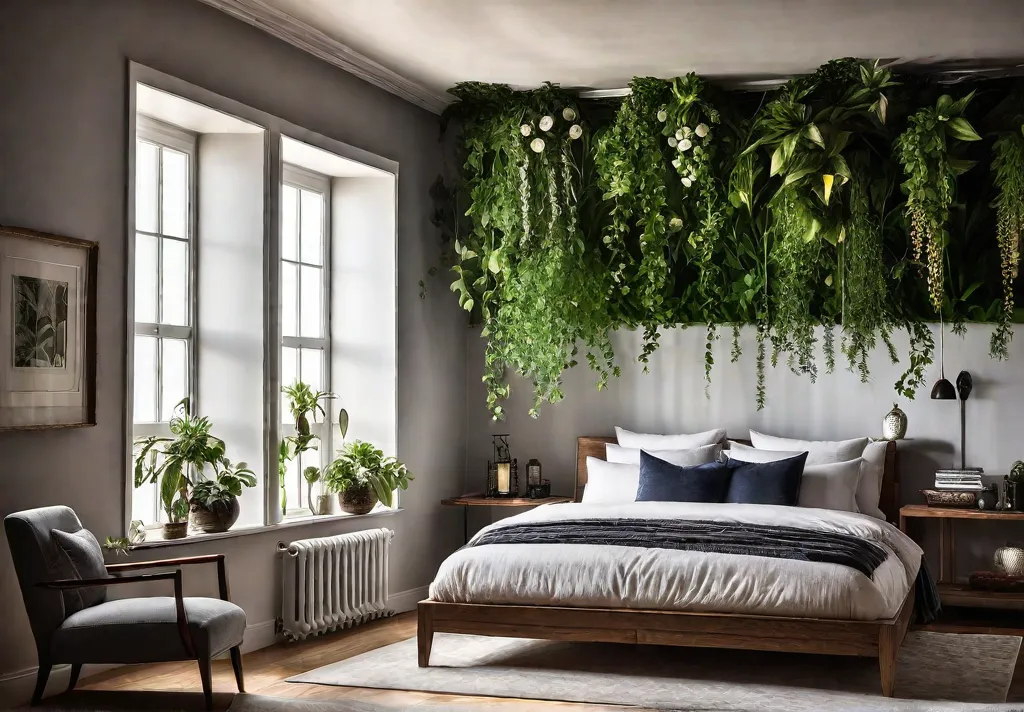Do you ever wish your bedroom felt more like a cozy, rejuvenating retreat? What if I told you the secret to creating a warm, inviting atmosphere is as simple as adding some plants? That’s right – incorporating greenery into your sleep space can enhance coziness and overall well-being.
As a visionary home designer in Boulder, Colorado, I’ve seen firsthand how the strategic use of plants can transform a bedroom from bland to blissful. You see, plants don’t just look beautiful – they also offer a wealth of benefits, from purifying the air to boosting your mood. And with the right approach, you can easily weave them into your bedroom’s decor in creative, eye-catching ways.
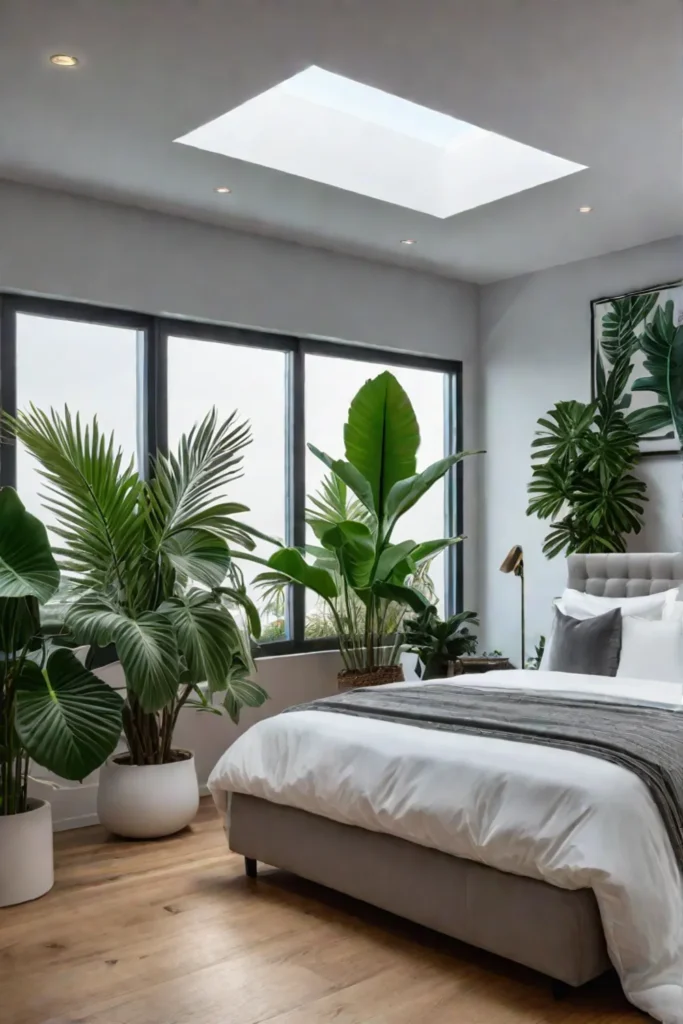
In this article, I’ll share nine inspiring ideas for using plants to make your bedroom the cozy oasis you’ve been dreaming of. Whether you have a green thumb or are a total plant novice, you’ll find simple, practical tips to create a warm, peaceful space that is perfectly in tune with nature. So, get ready to elevate your bedroom’s coziness factor and embrace the power of plants!
The Benefits of Plants in the Bedroom
Plants aren’t just pretty to look at – they also offer a wealth of benefits that can enhance your bedroom’s coziness and overall well-being. Let’s dive in and explore how these natural wonders can transform your sleep sanctuary.
Improved Air Quality
One of the most significant advantages of having plants in the bedroom is their ability to purify the air. Through photosynthesis, indoor plants release oxygen while absorbing harmful toxins like benzene, formaldehyde, and even carbon dioxide. This helps create a fresher, cleaner environment, making it easier to breathe and relax.
Some of the best air-purifying plants for the bedroom include the peace lily, English ivy, and pothos. These low-maintenance beauties thrive in typical bedroom conditions and can improve indoor air quality.
Stress Reduction and Mood Enhancement
Studies have shown that the mere presence of plants can have a calming effect, helping to reduce stress and anxiety levels. Plants’ soothing greenery and natural beauty have been linked to lower blood pressure and heart rates, promoting a sense of relaxation and well-being.
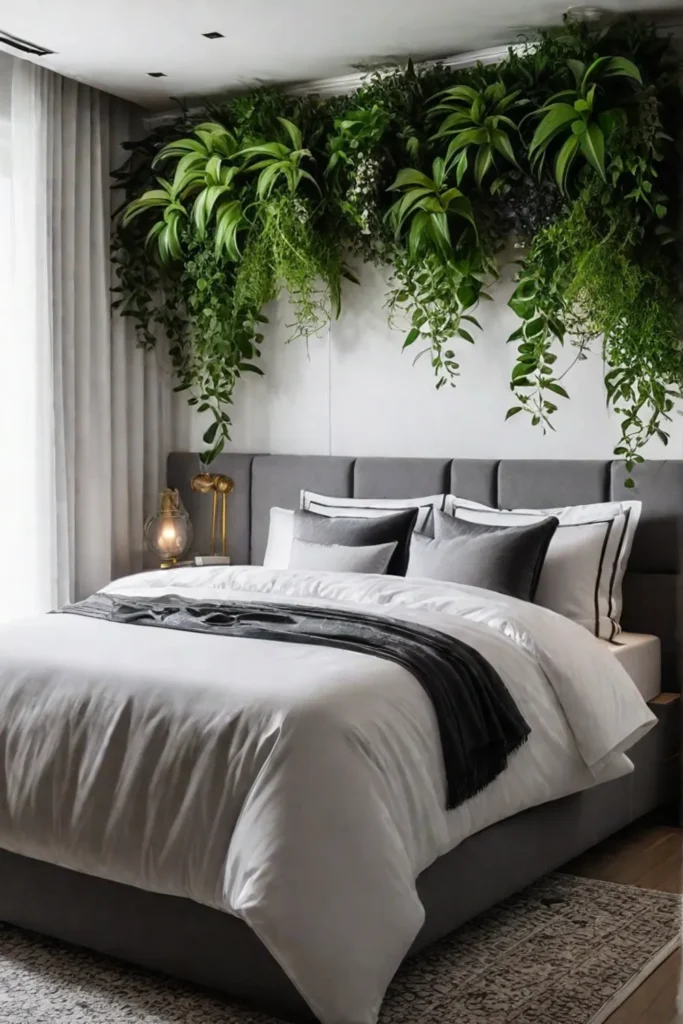
Certain plant species, like lavender and jasmine, are even known for their calming scents that can further enhance the tranquil atmosphere of your bedroom. So, not only do plants look beautiful, but they can also help you unwind and drift off to sleep more easily.
Sleep Quality Improvement
Did you know that plants can even help improve your sleep quality? Some indoor plants can create a more comfortable microclimate in your bedroom by regulating humidity and temperature levels. This, in turn, can contribute to a more restful and restorative night’s sleep.
Additionally, research suggests that exposure to certain plant compounds, like phytoncides, may promote deeper sleep stages. While more studies are needed, the evidence suggests that incorporating the right plants into your bedroom could be a simple way to enhance your overall sleep experience.
So, if you want to transform your bedroom into a cozy, rejuvenating retreat, consider the many benefits of adding some greenery to the mix. From cleaner air to a more calming ambiance, plants can work wonders to make your sleep space feel like a true sanctuary.
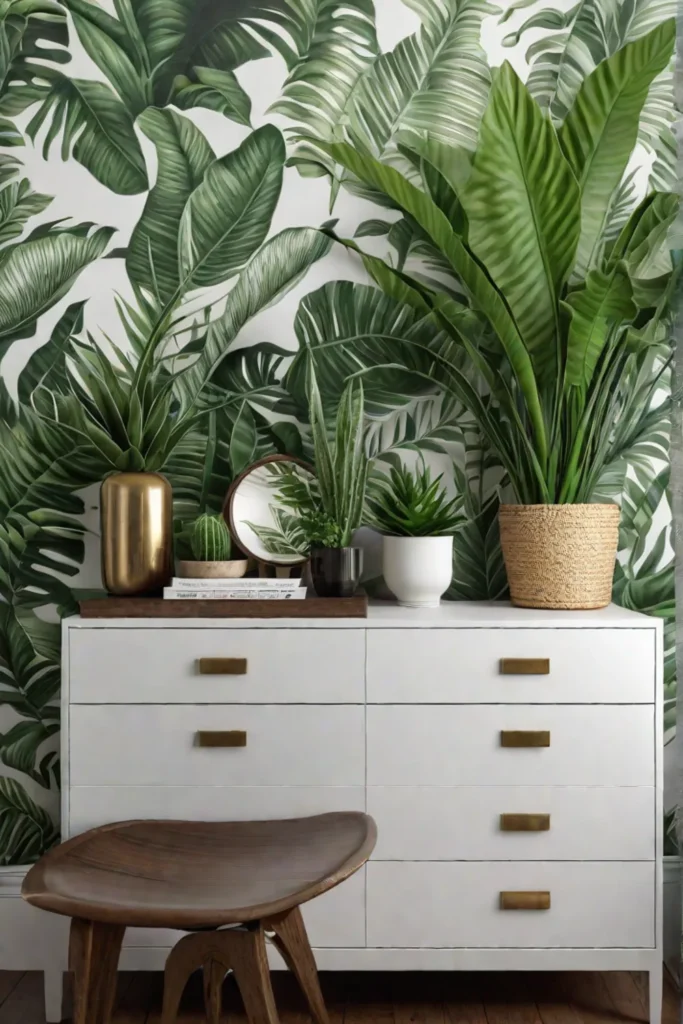
Incorporating Plants Into Bedroom Decor
Now that you know about the incredible benefits of having plants in the bedroom, let’s explore creative ways to incorporate them into your decor. After all, plants aren’t just functional – they can also be stunning design elements that elevate your space’s overall look and feel.
Using Plants to Create Focal Points
Plants can serve as captivating focal points that draw the eye and add visual interest to your bedroom. For instance, a large, statement-making plant like a fiddle-leaf fig or a lush, cascading palm can instantly become the room’s architectural centerpiece, complementing the clean, minimalist aesthetic that’s so popular in Boulder.
Integrating Plants into Storage and Display Solutions
Don’t be afraid to get creative with how you display your plants. Hanging plants, such as a string of pearls or devil’s ivy, can add depth and height to your bedroom while providing additional storage for small items like jewelry or accessories.
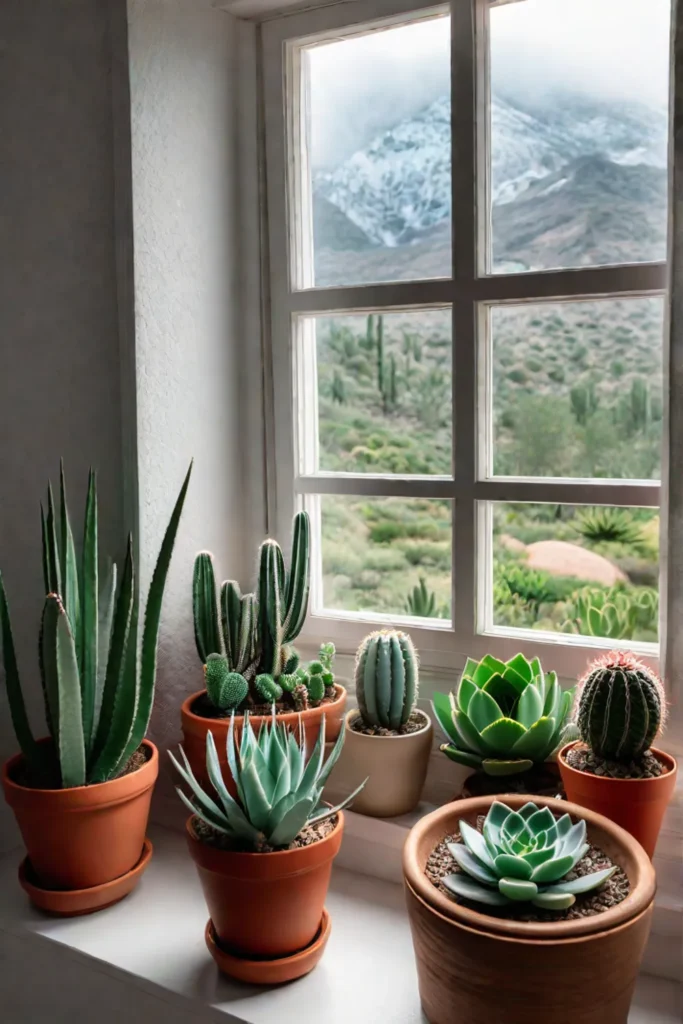
Leveraging Plants to Define Zones
Another clever way to use plants in your bedroom is to place them to define different zones within the space strategically. For example, plants could separate your sleeping area and a reading nook or dressing zone without relying solely on physical barriers like walls or furniture.
By carefully considering your plants’ size, shape, and placement, you can transform your bedroom into a visually captivating and functionally cohesive space that seamlessly blends nature and style.
Choosing the Right Plants for the Bedroom
When selecting plants for your bedroom, consider factors like light requirements, maintenance needs, and potential health benefits. After all, you want to choose species that will thrive in your sleep sanctuary’s unique microclimate.
Low-Light and Low-Maintenance Options
Since bedrooms often receive less natural light than other rooms in the home, it’s crucial to select plants that can adapt to these low-light conditions. Some great options include the snake plant, pothos, and Chinese evergreen, all known for surviving and even flourishing in dimly lit environments.
Additionally, look for plants requiring minimal maintenance, as you likely don’t want to fuss with watering and pruning in your retreat constantly. Succulents, such as echeveria or jade, are excellent choices, as they can go longer periods between waterings.
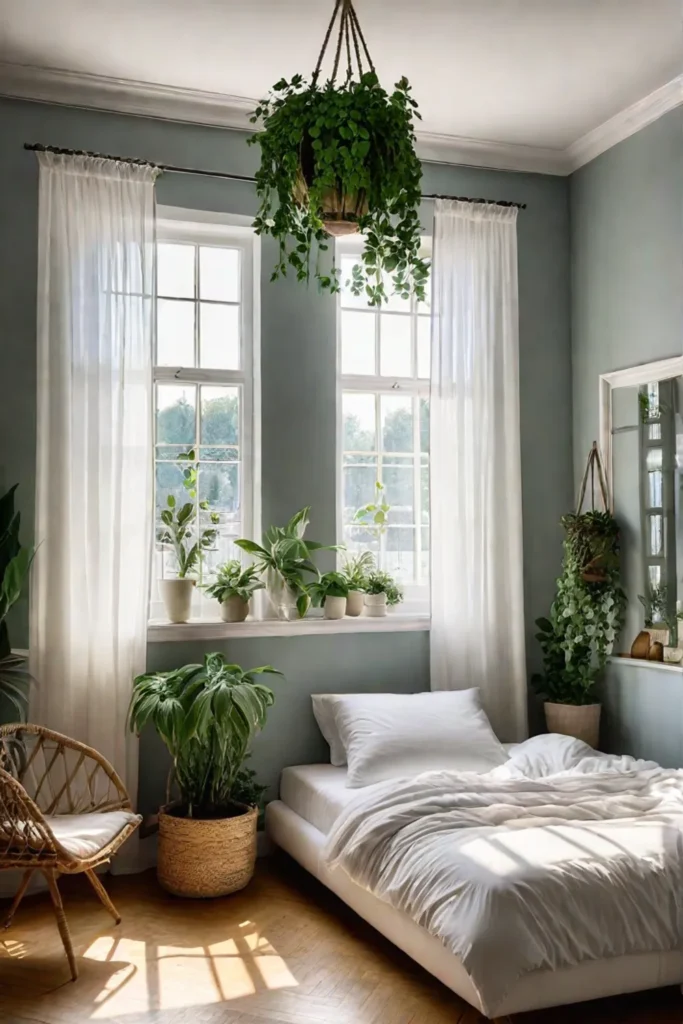
Air-Purifying and Calming Plants
When choosing plants for your bedroom, consider those with air-purifying properties. These plants can help create a healthier, more rejuvenating environment. Plants like the peace lily and English ivy are renowned for removing harmful toxins from the air, making them ideal for the bedroom.
You might also want to incorporate plants with calming properties, such as lavender or jasmine. These fragrant species can create a more serene, relaxing atmosphere, potentially promoting better sleep.
By carefully selecting the right plants based on your bedroom’s unique conditions and your personal needs, you can create a harmonious, plant-filled oasis that enhances your space’s overall coziness and well-being.
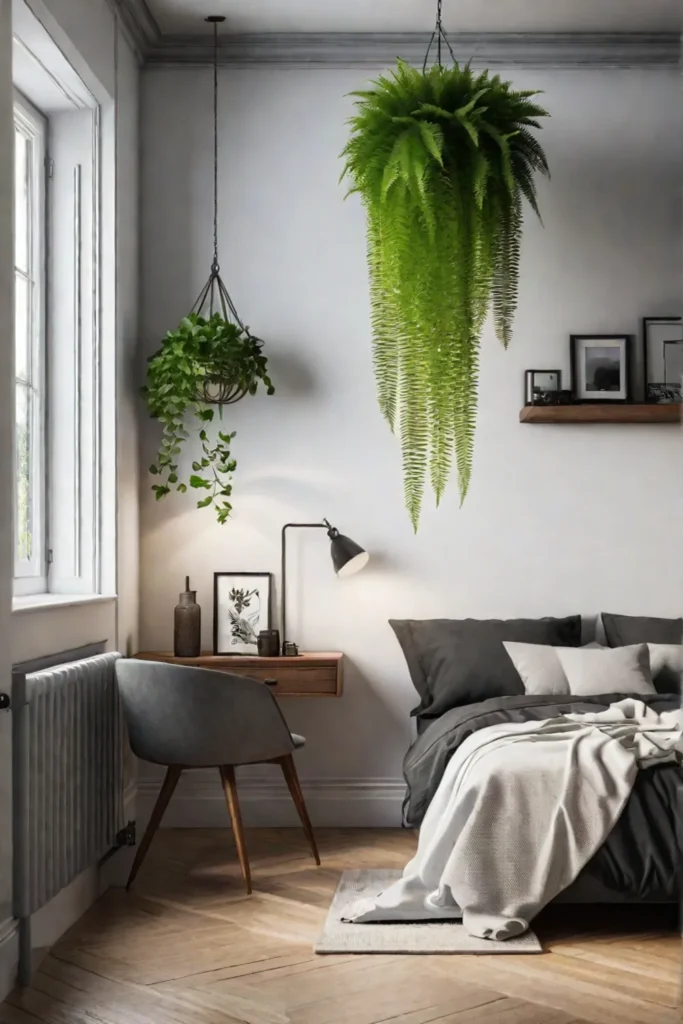
Caring for Plants in the Bedroom
Maintaining a healthy, thriving plant collection in your bedroom is essential for ensuring they continue to contribute to the overall coziness and comfort of the space. Let’s explore key tips and techniques for caring for your bedroom plants.
Establishing a Watering and Feeding Routine
Proper watering is crucial for the long-term health of your bedroom plants. Due to the increased humidity and reduced airflow, overwatering is a common issue in this environment, so it’s important to water only when the soil feels dry. Consider using self-watering pots to help regulate moisture levels.
When it comes to feeding, choose a balanced, all-purpose fertilizer and apply it every two weeks during the growing season and once a month during the winter. Be sure to follow the instructions on the packaging to avoid over-fertilizing, which can harm your plants.
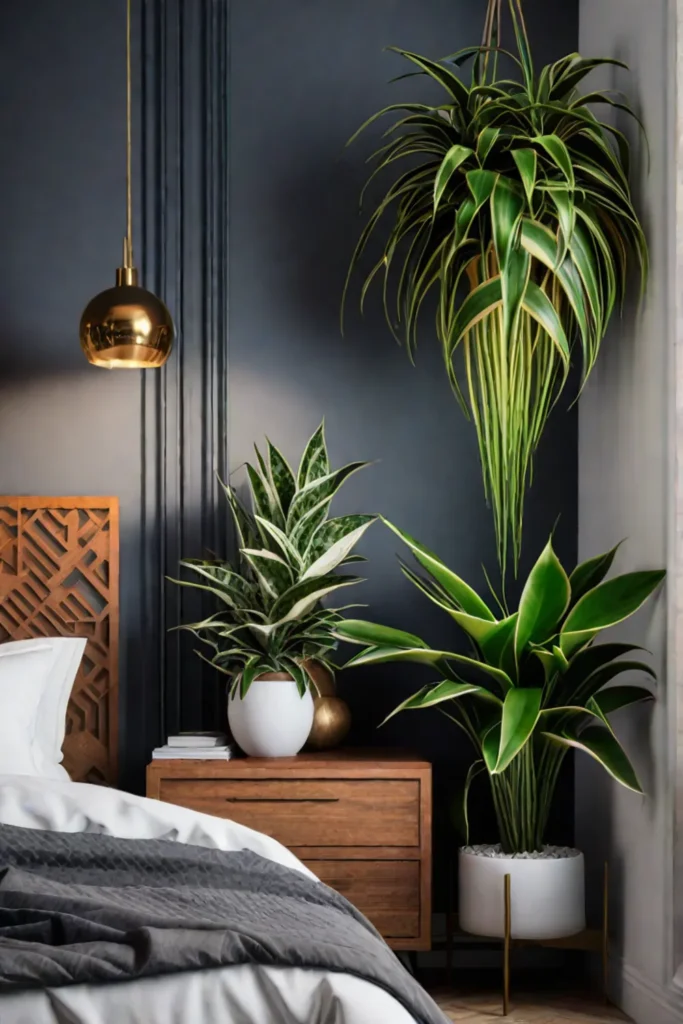
Pruning and Maintenance Techniques
Regular pruning and maintenance are essential for keeping your bedroom plants looking their best. Trim away dead or damaged leaves and stems to encourage new, healthy growth. When pruning, make clean, angled cuts to allow water to flow away from the wound, reducing the risk of rot or disease.
It’s also a good idea to watch for common pests like spider mites or scale insects and treat any infestations promptly with appropriate pesticides or natural remedies like neem oil. Maintaining the overall health of your plants is key to ensuring they continue to thrive and contribute to the cozy ambiance of your bedroom.
Repotting and Propagation
As your bedroom plants grow, they may outgrow their containers and become root-bound. When this happens, it’s time to repot them into larger pots with fresh, nutrient-rich soil. Spring is typically the best time to tackle this task, as it allows the plants to establish themselves before the peak growing season.
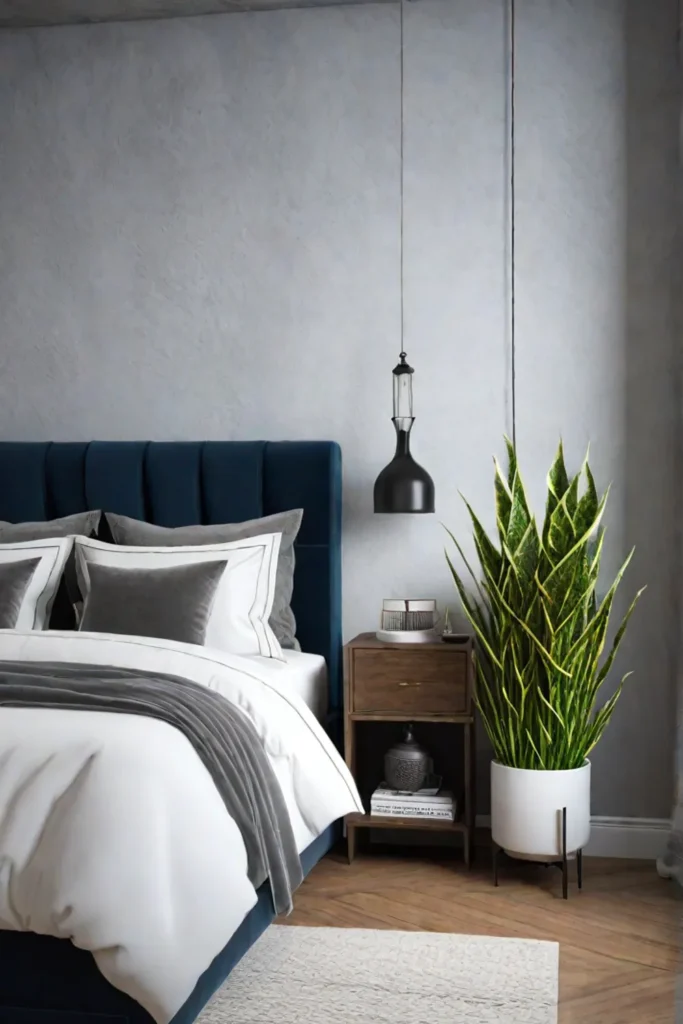
Propagating your bedroom plants is another great way to maintain their long-term health and longevity. Many species, such as pothos or English ivy, can be easily propagated through stem or leaf cuttings. This gives you new plants to enjoy and helps reinvigorate your existing specimens.
By staying on top of watering, feeding, pruning, and other maintenance tasks, you can ensure your bedroom plants remain healthy and vibrant and continue contributing to your sleep sanctuary’s overall cozy ambiance.
Enhancing Bedroom Coziness with Plants
Now that you’ve learned about the benefits of plants, how to incorporate them into your bedroom decor, and the best practices for caring for them, let’s explore some creative ways to use these natural wonders to enhance the overall coziness of your sleep space.
Creating Cozy Nooks with Plants
Transform a quiet corner of your bedroom into a cozy reading nook by surrounding it with potted plants. Place a comfortable chair, a small side table, and a few throw pillows in the space, then fill it out with a mix of low-maintenance succulents, herbs, or even a small, bushy fern. The result will be a warm, inviting spot perfect for curling up with a good book.
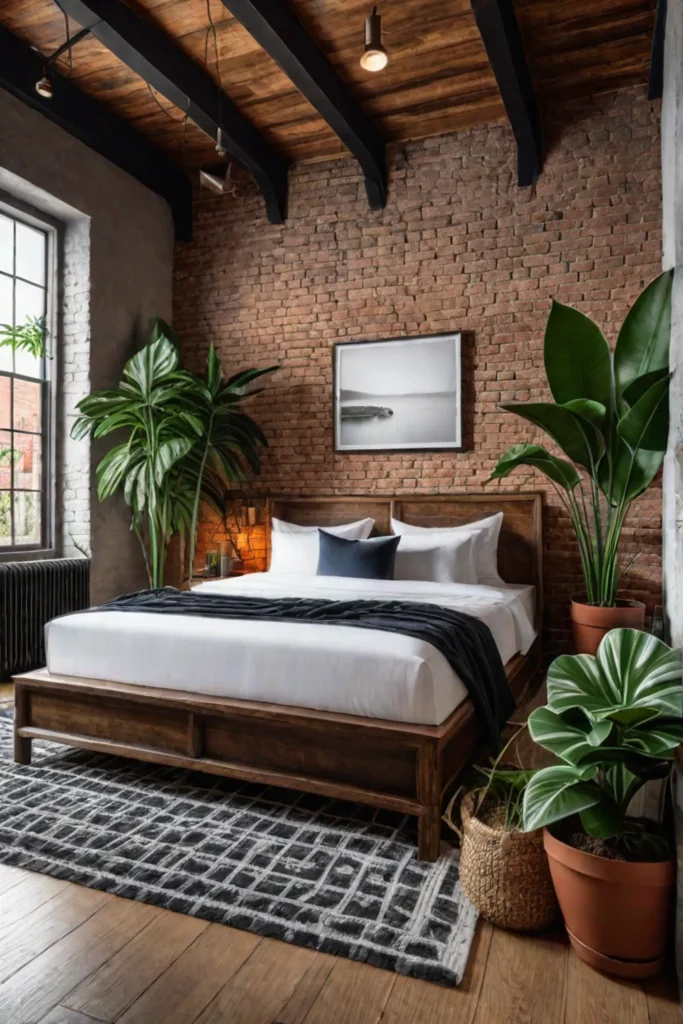
Softening Hard Surfaces with Greenery
Plants such as wooden furniture or concrete walls can also soften the hard surfaces in your bedroom. Hang trailing plants like ivy or string of pearls from shelves or picture frames to create a lush, verdant backdrop that adds depth and texture to the space.
Incorporating Plants into Lighting Fixtures
Take your bedroom’s coziness to the next level by incorporating plants into your lighting fixtures. Suspend a hanging planter from a pendant light or tuck a small potted plant into a table lamp base. The combination of soft, warm lighting and the natural beauty of the plants will create a truly inviting and relaxing ambiance.
By thoughtfully incorporating plants throughout your bedroom, you can transform the space into a cozy, rejuvenating retreat that perfectly blends nature and style. Remember, the key is to select the right plants, position them strategically, and maintain their health to ensure they continue contributing to the overall coziness and well-being of your sleep sanctuary.
Conclusion
In the bustling, high-tech world we live in, creating personal spaces that foster a sense of peace, comfort, and connection to the natural world is more important than ever. And when it comes to the bedroom, the strategic use of plants can be a game-changer.
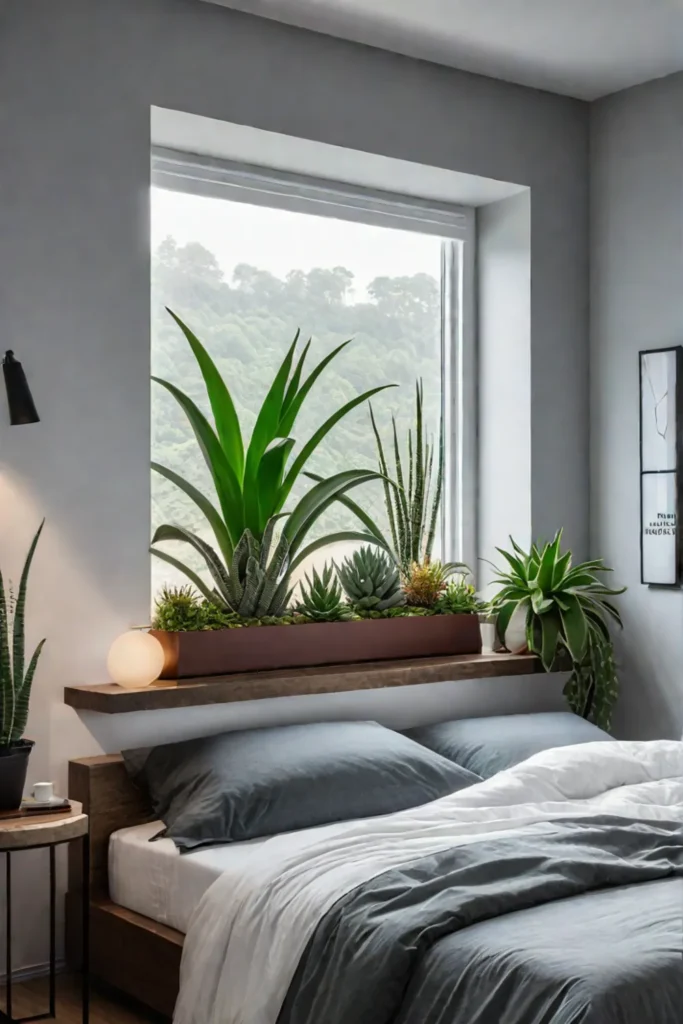
By incorporating greenery into your sleep sanctuary, you can enjoy many benefits, from improved air quality and reduced stress to enhanced sleep quality and an overall sense of coziness and well-being. Whether you’re a seasoned plant parent or a total novice, the ideas and tips I’ve shared in this article will help you transform your bedroom into a true oasis of calm and relaxation.
So, what are you waiting for? Start exploring the wonderful world of plants and let them work their magic in your personal sleep space. Your cozy, rejuvenating bedroom retreat awaits!
